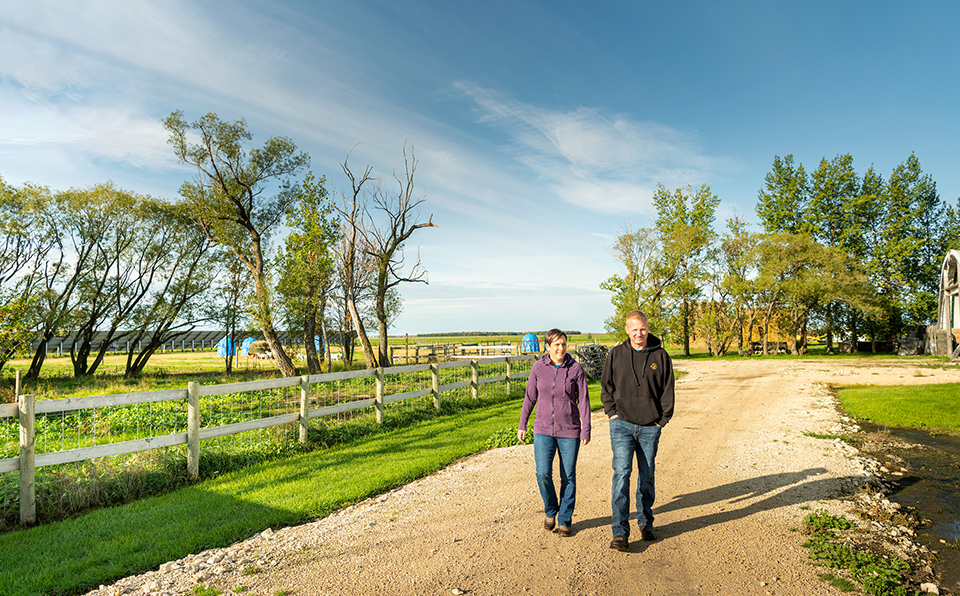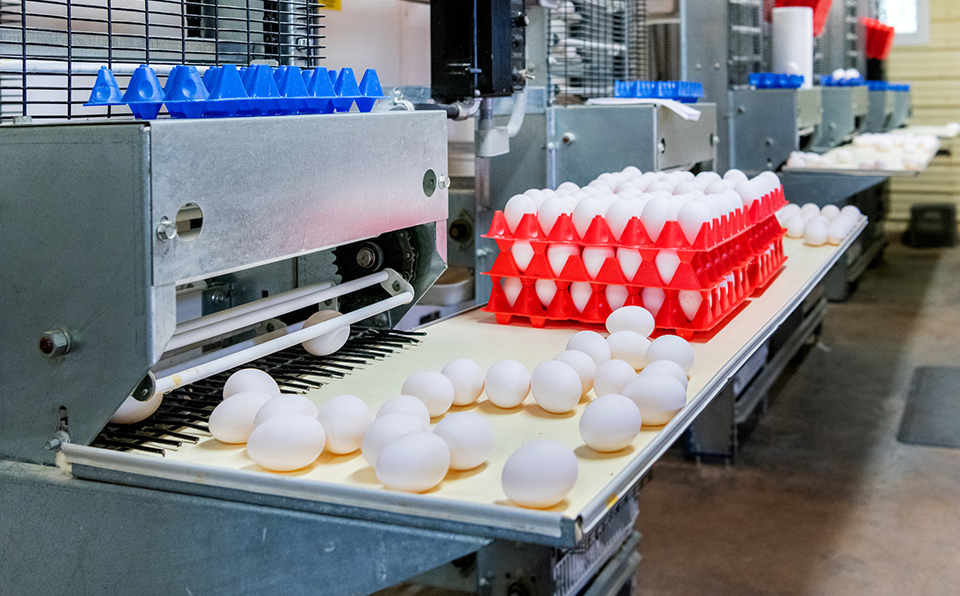
How this egg farmer shares farm life with her community
By Egg Farmers of CanadaSandra Dyck loves being around people: meeting them, getting to know them and sharing what her life is like as a Canadian egg farmer. You will often find Sandra at community events or hosting tours on her family’s farm in Springstein, Manitoba.
“We were approached by the University of Manitoba to do tours of our egg barn,” says Sandra. And so, Sandra and her husband Eric welcomed groups of students from nearby Winnipeg, showing them the ins and outs of the egg farm. Over time, the tours expanded from the egg barn to every aspect of the Dyck family’s multifaceted farm.
Tour participation has expanded too. Sandra and Eric have offered tours to English-as-a-second-language classes, children from surrounding communities, even employees at the office of the Dyck family’s accountant. Today they offer an annual tour for new Canadians, one which Sandra particularly loves. Many of these new Canadians farmed in their home countries and she enjoys swapping knowledge with them.

“We’re Winnipeg’s backyard,” notes Sandra, and so the Dycks are perfectly positioned to share the experience of life on the farm with urban Manitobans. Collaborating with community partners and offering organized tours is an activity you will find on many farms across Canada. Farmers love to share their expertise—especially with those who may not otherwise have the opportunity to learn about where their food comes from.
“Exposure is important to help people understand food production,” says Sandra. “It’s not quite what people expect. People are impressed by how forward thinking we are—people don’t realize all the science that goes into farming.”

Much of the latest science and innovation in egg farming can be found in the Dycks’ enriched colony housing system. Enriched colony housing is designed to allow hens to exercise many of their natural behaviours. For instance: hens have access to amenities like scratch pads and perches which allow them to act out natural instincts.
“I tell visitors that these are the eggs they are eating in Winnipeg,” Sandra says with pride. “This is the 100-mile diet. Eggs are locally produced.”
Indeed, because of supply management the vast majority of the eggs consumed in Canada are produced by local farmers. This local connection—the fact that farmers and consumers are neighbours—“puts a face behind the eggs,” as Sandra puts it, “and people feel better about buying a local product.”
To learn more about life on an egg farm, make sure to check out our virtual farm tour!